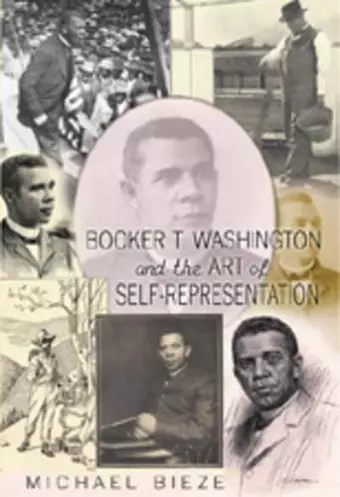Booker T. Washington and the Art of Self-Representation
Michael Bieze author Alan R Sadovnik editor Susan F Semel editor
Format:Paperback
Publisher:Peter Lang Publishing Inc
Published:13th Feb '08
Currently unavailable, and unfortunately no date known when it will be back

Booker T. Washington embraced photography as the artistic medium to represent himself and Tuskegee Institute because it was economical, technical, utilitarian, and aesthetic: an apt form for a man who preached a gospel of thrift, industry, self-sufficiency, and beauty. Advancements in photography at the end of the nineteenth century allowed Washington to be simultaneously better known and more elusive – an international celebrity with a multitude of identities.
Washington produced and directed photographic images by considering region, race, and class. Initially, he crafted an image of Victorian grace as a fund-raising strategy which appealed to elite white America’s belief in gradual reform. As Washington entered the last decade of his life, he gradually shifted his efforts toward speaking directly to black audiences with the support of black photographers. He shed the passive role he presented to the white world and challenged racist popular culture by visually demonstrating social and cultural equality.
Washington should be credited with not only launching the careers of several black photographers but also with establishing the early aesthetic of the «New Negro». From 1895-1915, Washington was the central figure in African American culture, supporting black artists telling black stories in the contemporary Victorian aesthetic, and showing how blacks could equal whites artistically and culturally.
«Bieze is nothing short of brilliant in this lucid, succinct, and smart take on the life and carefully constructed public image of Booker T. Washington. Bieze uses visual and literary documents with archeological precision and insight to unearth the multivalent persona of Washington, and to reveal the historic educator as almost Machiavellian in his capacity to shape and reshape his own image for disparate patrons and public. For scholars and students of American and African American history, photography, and art, Bieze’s revelatory book is a must read!» (Lisa Farrington, Professor, Parsons School of Design; Cosby Scholar-in-Residence, Spelman College)
«Booker T. Washington is one of the most misunderstood individuals in American history. Few people actually read his work before making judgments as to the kind of leader he was and as a result, he has been labeled an ‘Uncle Tom’, an accommodationist, and worse. Michael Bieze has written, in my opinion, the best book on Booker T. Washington in the past 25 years. Not only is Bieze a beautiful writer but he provides a nuanced portrayal of Washington, showing how the man changed over time from someone who sometimes kowtowed to Whites to a man who took the world stage as ‘a social critic, a champion of the downtrodden, and a man of his people’.» (Marybeth Gasman, Ph.D. Assistant Professor, Higher Education Graduate School of Education University of Pennsylvania)
ISBN: 9781433100109
Dimensions: unknown
Weight: 420g
292 pages
New edition